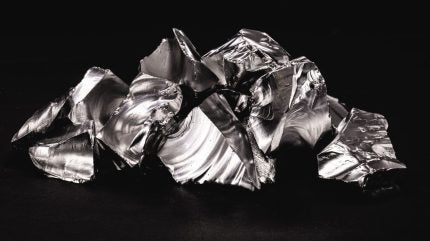
China has suspended its ban on exporting gallium, germanium and antimony to the US, although export controls for these metals remain in effect, requiring shippers to obtain licences from Beijing.
Between August 2023 and September 2024, China restricted exports of these three metals, then in December escalated its response to Washington’s new chip-sector restrictions by imposing a total ban specifically targeting the US, reported Reuters.

Discover B2B Marketing That Performs
Combine business intelligence and editorial excellence to reach engaged professionals across 36 leading media platforms.
The suspension of the ban is the latest easing of China’s mineral export controls, coming on the heels of the recent meeting in South Korea between US President Donald Trump and Chinese President Xi Jinping.
The ban led to shortages for US users, pushing some importers to seek alternative routes, including shipments through third countries, to access the critical materials.
These metals are vital for manufacturing semiconductors, fibre-optic cables, ammunition and flame retardants.
China’s Ministry of Commerce was cited by the news agency as saying the latest ban suspension will last until 27 November 2026.

US Tariffs are shifting - will you react or anticipate?
Don’t let policy changes catch you off guard. Stay proactive with real-time data and expert analysis.
By GlobalDataHowever, the metals remain on China’s dual-use export control list, which means exporters must still apply for licences for any overseas sales.
The ministry emphasised “the decision to suspend the ban did not revoke the earlier decisions to add the three metals to the dual-use export control list”.
Additionally, the ministry also clarified that the suspension does not affect the ban on exports of any dual-use items to US military users, a measure introduced alongside the metals ban in December 2024.
Exporters will continue to face restrictions when dealing with customers identified as military users in the US.
Despite the trade tensions, China has maintained substantial influence over the supply of these critical minerals, which are used across various sectors ranging from consumer electronics to advanced military technology.
While gallium, germanium and antimony are not classified as rare earth elements, they remain vital for global industries.
According to an EU report published in 2024, China produces 94% of the world’s gallium, which is used in integrated circuits, LEDs and photovoltaic panels.
China’s Ministry of Commerce announced the suspension of a stricter regime of checks for exporters seeking licences to export certain dual-use graphite products to the US.





